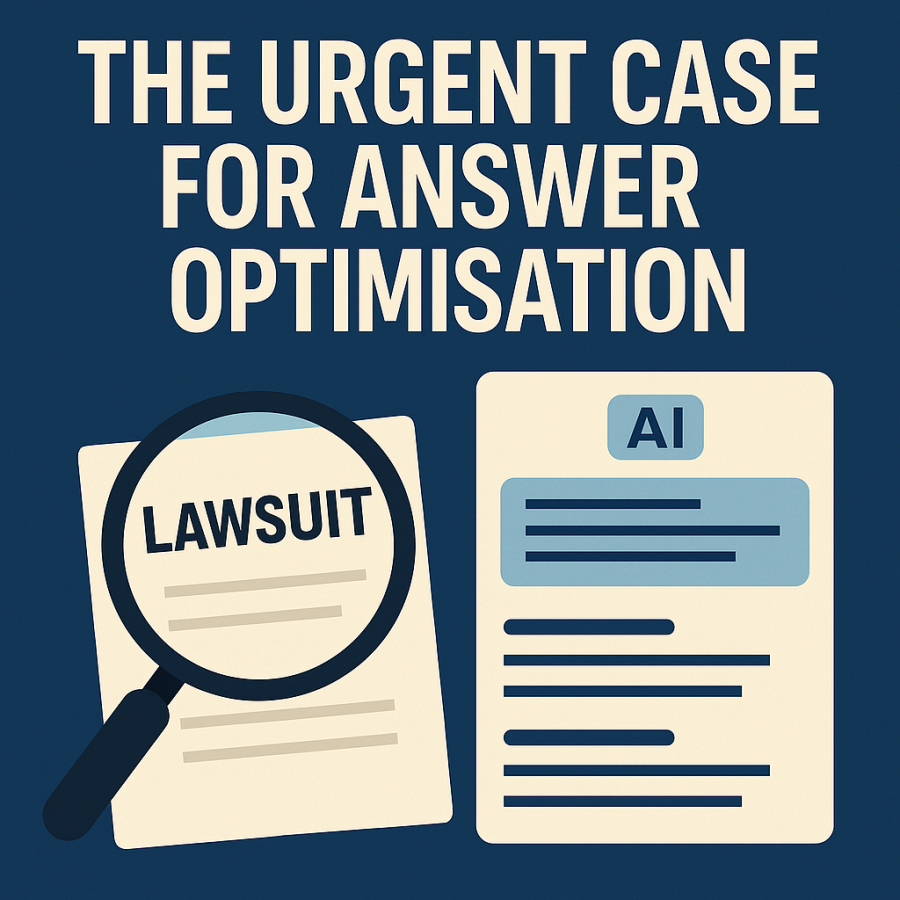Publishers are suing Google over AI Overviews—and that’s not just legal drama. It’s a red flag for anyone relying on clicks: AEO is now mission‑critical.
New Lawsuit Puts AI Overviews in the Spotlight
On 14 September 2025, Penske Media Corporation—the owner of Rolling Stone, The Hollywood Reporter, Billboard and Variety—filed a lawsuit against Google. The claim: Google’s AI Overviews summaries, appearing atop search results, are using publishers’ content without adequate compensation and substantially reducing traffic to their websites. Publisher revenue from affiliate links is said to be down by over a third because users can get what they need without clicking through.
Reuters
This isn’t just a flashpoint in media law; it’s a signal to content creators: how your content is summarised matters as much as if it ranks.
What This Means for AEO: Citations, Visibility & Trust
- Reduced incentive for click-throughs: When users get their answers directly in AI Overviews, fewer will click through—even when sources are cited. The lawsuit alleges this very drop in traffic is harming publishers’ business models.
- Reuters
- Citations matter more than ever: If Google (or any answer engine) is summarising your content, your page needs to be cited—not just indexed. High credibility, freshness, authority will boost your chances.
- Balancing act for content creators: You must optimise for being the best source that AI will reference. That means content structure, trusted domains, good metadata, schema markup, and clarity.
Recent Empirical Find: GEO‑16 Framework
A new study published 13 September 2025, “AI Answer Engine Citation Behavior: An Empirical Analysis of the GEO16 Framework”, analysed how Google AI Overviews, Perplexity, and Brave Summary cite web content.-arXiv
Key discoveries:
- Features like freshness, well‑structured metadata, and use of structured data strongly correlate with whether pages are cited.
- Pages scoring well on GEO‑16 (a 16‑pillar framework) are much more likely to be used as sources.
- It’s not enough to rank well—to be cited, your content must tick multiple quality boxes.
AEO Strategy: What to Do Now
Audit for citation-readiness: Ensure your pages have up‑to‑date content, solid metadata, correct structured data (schema.org etc.), and clear semantic (HTML) structure.
Lead with answers: Craft content so that the first paragraphs succinctly answer the likely query—those are what AI Overviews tend to pull.
Use schema (FAQ, HowTo, Q&A) to help AI understand content context and improve chances of being cited.
Build authority and trust signals: Author names, credentials, date stamps, references. If possible, partner or earn mentions from other authoritative sources.
Monitor not just traffic but AI‑content visibility: How often is your content being referenced (even if not clicked)? Use tools and analytics that detect AI citations, not just SERP rank or CTR.
Looking Ahead: What AEO Might Demand
The Penske lawsuit and the GEO‑16 study together suggest that AEO will increasingly reward quality plus transparency. Expect:
- More pressure on large platforms to license content—or compensate publishers—for use in summarised AI Overviews.
- More refined algorithms favouring well‑structured, authoritative content for citation decisions.
- Possibly more regulation or at least formal guidance about fairness in content use (especially for media/publishers).

